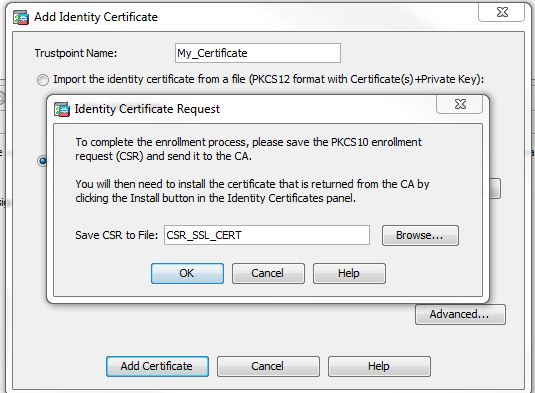Crypto Key Generate Rsa Modulus 2048
- Table 1: Sample Times by Modulus Length to Generate RSA Keys Router 360 bits 512 bits 1024 bits 2048 bits (maximum) 4minutes,38 Morethan1hour seconds Cisco2500 11seconds 20seconds Cisco4700 Lessthan1second 1second 4seconds 50seconds CiscoIOSsoftwaredoesnotsupportamodulusgreaterthan4096bits.Alengthoflessthan512bitsisnormally.
- Oct 02, 2015 Router(config)# crypto key generate rsa general-keys The name for the keys will be: myrouter.example.com Choose the size of the key modulus in the range of 360 to 2048 for your General Purpose Keys. Choosing a key modulus greater than 512 may take a few minutes.
- How many bits in the modulus 512: 2048% Generating 2048 bit RSA keys, keys will be non-exportable. OK (elapsed time was 3 seconds) OK (elapsed time was 3 seconds) When you use the crypto key generate rsa command, it will ask you how many bits you want to use for the key size.
We need configure SSH on a Cisco router or switch in order to access it remotely, unless we’re using an access server. The label is important, I'll tell you! In a minute why C1801(config)# crypto key generate rsa modulus 1024 label C1801 The name for the keys will be: C1801% The key modulus size is 1024 bits% Generating 1024 bit.

A digital certificate or identity certificate is an electronic document which uses a digital signature to bind a public key with an identity, information such as the name of a person or an organization, their address, and so forth. The certificate can be used to verify that a public key belongs to an individual.
In a typical public key infrastructure (PKI) scheme, the signature will be of a certificate authority (CA). However, there are situations where it is not possible use a CA, so the only solutions is to use a self-signed certificate, an identity certificate that is signed by the same entity whose identity it certifies.
The standard used by Cisco is X.509, an ITU-T standard for a public key infrastructure (PKI) and Privilege Management Infrastructure (PMI). X.509 specifies, amongst other things, standard formats for public key certificates, certificate revocation lists, attribute certificates, and a certification path validation algorithm.
The most common use of certificates is for HTTPS-based web sites. A web browser validates that an SSL web server is authentic, so that the user can feel secure that his/her interaction with the web site has no eavesdroppers and that the web site is who it claims to be. Other uses are VPN lan2lan, GetVPN and so on.
Cisco Generate Crypto Key
There are two different approaches to create a self-signed certificate: automatic or manual.
Generate A Rsa Crypto Key
To automatically create an rsa key pairs and a certificate, enable the https server:
Crypto Key Generate Rsa Ssh
Where is the certificate?
Remember: Save the configuration to save the certificate!
The second method requires three steps: create an rsa key pairs, create a self signed trust point and enroll the certificate.
Create an RSA keys:
Create a local PKI: Last of us 2 pc key generator.
Remembers: The “subject-name” is the name of the entity whose public key the certificate identifies. For instance, “O” identify the “Organization” and “CN” the Common name
Obtain the certificate from the local certificate authority:
Remember: You must save the configuration to save the certificate!
To see more information about the certificates and the rsa keys are, you can use these commands:
- show crypto pki certificates
- show crypto pki trustpoints
- show crypto key mypubkey rsa
References: